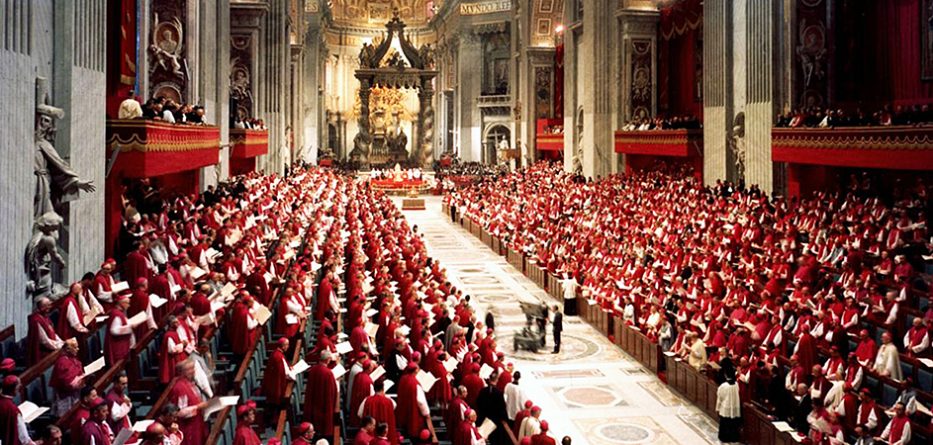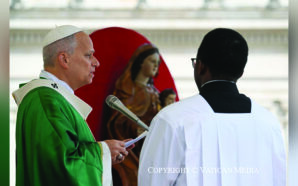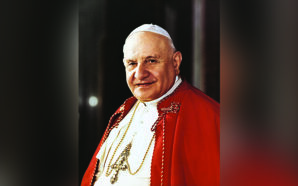Catholics can’t retreat into a metaphorical cabin in the woods; they have to face change in the church and in the world head on.
This month we celebrate the Solemnity of the Body and Blood of Christ, a sacramental reality at the center of all we hold true. Jesus said “take and eat,” and the church has been ritually doing this ever since. We do this in all kinds of ways. Formally, as at our first communion. Habitually, as at Sunday or daily Mass. With great intentionality, as in the viaticum we hope to be privileged to receive in the last hours of our lives.
We take communion in all sorts of frames of mind: thoughtfully, earnestly, piously, mindlessly. Sometimes we’re truly hungry for what the world cannot give as we stretch out our hands. At other times, we feel unworthy to approach the table. Or we may feel so “out of communion” with the church in seasons of our lives that we wonder if receiving the sacrament is hypocritical.
We Catholics perceive our identity as in or out of the church based on our relationship to this sacrament. Which brings us to the gravity of a document from the Second Vatican Council: The 1963 Constitution on the Sacred Liturgy, or Sacrosanctum Concilium, isn’t just the first document produced by the council. It’s the one most popularly associated with Vatican II: the one that “turned the altars around” and translated the Mass into the language of the people rather than the formerly mandated Latin liturgy.
The contents of this constitution are the primary reason St. Pope John XXIII decided to launch the 21st ecumenical council in the church’s history to begin with. Throughout his priesthood and during his time as archbishop, it pained him that the Catholics he saw were so disengaged during Mass. Reading prayerbooks or saying rosaries as unintelligible rituals unfolded, folks in the pews rarely got up to receive communion, convinced of their unworthiness. What went on at Mass was too holy to comprehend and more than a little unwelcoming.
Yet the church taught that “full, conscious, and active” participation in sacramental life is the very heart of Christian life. Clearly, something had to change. What would it take for Catholics to become genuinely involved in the Eucharist and to understand themselves as the body of Christ, an incarnate sacrament delivered to the world?
To continue reading this article, click here.
Alice Camille is the author of Working Toward Sainthood (Twenty-Third Publications) and other titles available at www.alicecamille.com.
With thanks to U.S. Catholic, a publication of the Claretian Missionaries, a Roman Catholic religious community of priests and brothers dedicated to the mission of living and spreading the gospel of Jesus.








